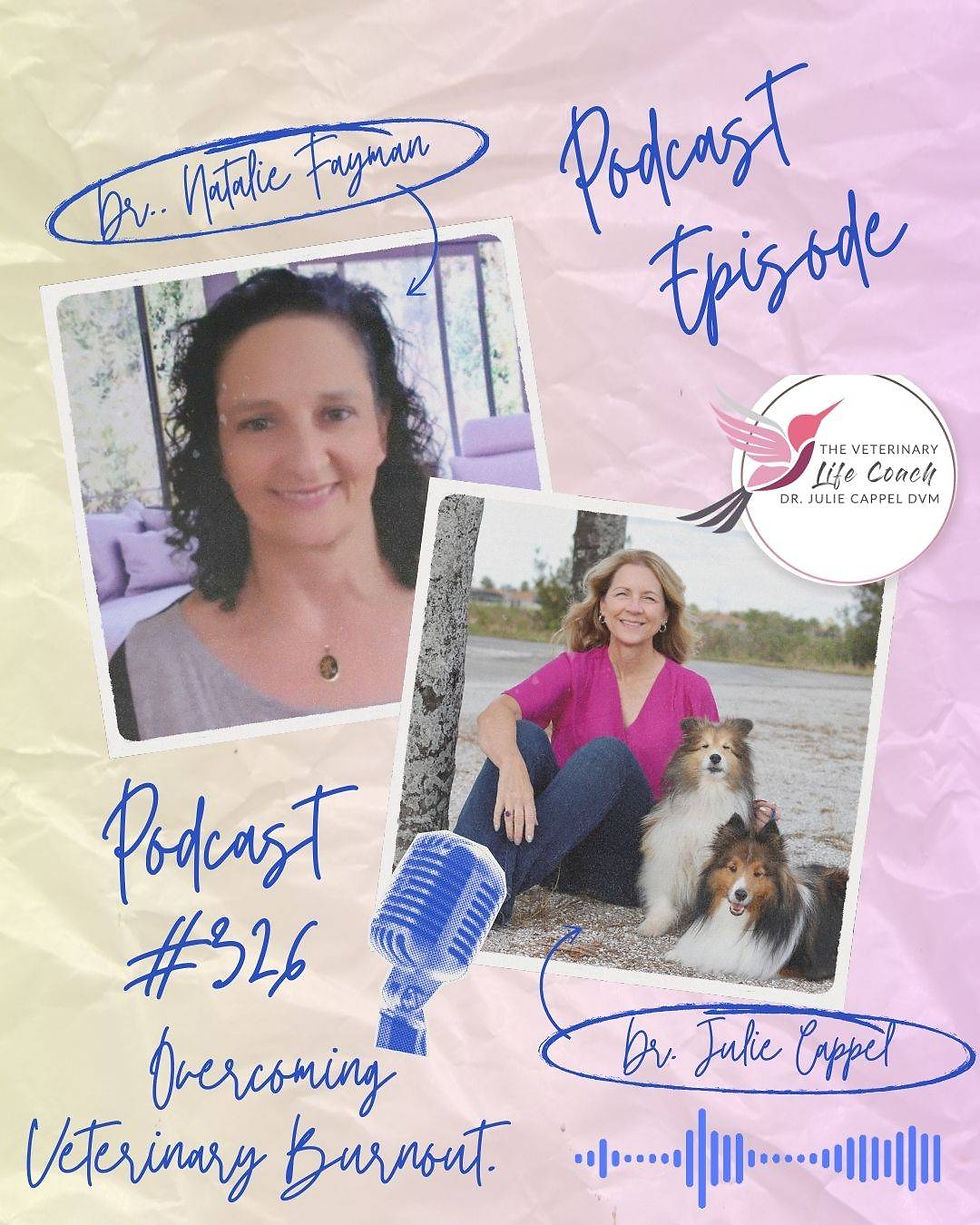The Mental Health Crisis in Veterinary Medicine
- Natalie@nolimitscoachingnow.com

- Aug 3, 2024
- 4 min read
Natalie Fayman, DVM, ACC, CPC, CPQC

There’s a silent epidemic of anxiety, depression, and unhappiness in veterinary medicine, and I believe it's the root-cause of the critical veterinary shortage. DVM’s are leaving the profession in record numbers, increasing the stress and workload for those who remain.
To change this, we must begin to impose boundaries around our time, our energy, and our selflessness. We must demand basic human considerations like reasonable work/life balance, and require that our human limitations be respected. Avoiding burnout is absolutely mandatory for any DVM who wants to give back to this profession and their patients for the next 30 years or more.
Early Signs of Strained Mental Health
Many veterinarians ignore the negative impact of stress, heavy workload, and long hours on their mental health. Some signs that may indicate a need for support:
Chronic Fatigue: Persistent tiredness that doesn’t improve with rest.
Depression and Anxiety: Feelings of hopelessness, sadness, or excessive worry.
Irritability and Mood Swings: Increased irritability or significant changes in mood.
Loss of Interest: A lack of interest in activities that were once enjoyable.
Physical Symptoms: Unexplained headaches, digestive issues, or chronic pain.
Causes of Declining Mental Health in Veterinary Medicine
• Expectations of the Public
Most people would never expect their own doctor to be available night & day, to personally come to the phone on demand, or to discount their services while working under the weight of crushing debt and neglected family-time.
I talk to a lot of people, and the vast majority who don’t work in vet med are utterly shocked to hear that there’s a mental health crisis affecting veterinary professionals. It never occurs to them that the generous people who care for their fur-babies are suffering to keep them happy.
It’s up to us to teach our clients where the boundaries lie. As long as we continue being the selfless superheroes they imagine, that’s exactly what they'll feel entitled to.
• Expectations of Employers
It’s a short-sighted employer indeed who sees their employees as profit-generating machines, to be worked as hard as possible for the least acceptable compensation.
Any employer who sees the big picture recognizes that DVM’s are their most valuable asset.
Ensuring the mental & physical wellbeing of all employees will pay off in the form of reduced turnover, higher productivity, and better engagement. Happy and healthy employees are an incredible asset to any veterinary practice.
• Self-Imposed Expectations
Sacrificing time with your family, working long hours without breaks, or beating yourself up over normal human limitations may drive you to push through times of urgent need… but adopting this as a permanent way of life is an express path to self-destruction.
Always keep in mind what’s truly important in the big picture of life. For most of us, that’s our health and our family bonds. And yet, so many of us continue to live and work in ways that slowly erode those non-negotiable core values.
The Veterinary Shortage
The current shortage of veterinarians and veterinary staff is stressful for everyone, but it may also present an opportunity to re-form our profession into one that more sustainably preserves our energy and passion, from graduation through retirement.
• What to Do as an Employer
If you notice that morale in your practice is suffering, you can:
Implement regular check-ins: just letting your work-family members know that you care about them is a game-changer
Provide access to professional counseling (see other resources below)
Insist on a culture of openness and support: psychological safety in the workplace is a must, if you expect your employees to trust and work hard for you
Encourage work/life balance: Happy and fulfilled employees are more engaged, more enthusiastic, more loyal, and more productive.
• What to Do as an Employee
If you're feeling negative effects on your mental health, please take action before it becomes a crisis:
Seek help from a licensed mental health professional
Join veterinary support groups
Take advantage of your workplace's Employee Assistance Programs (EAPs), if available
Reach out to hotlines and crisis resources (see below)
Most importantly: Speak up and ask for what you need, without guilt or shame!
Don’t be afraid to reach out to a professional therapist or coach if you need support. Nothing gets better if you continue suffering in silence, for fear of judgment from others.
Anyone who judges you for seeking help is someone who’s more concerned with getting what they want, vs. you getting what you need. Don’t let these people decide what you do, or don't do, to take care of yourself!
Resources
National Suicide & Crisis Lifeline: Call 988, available 24/7
Crisis Text Line: Text "HOME" to 741741, available 24/7
NOMV Lifeboat:https://www.nomv.org/lifeboat/
AVMA Wellbeing Resources:https://www.avma.org/resources-tools/wellbeing
If you or someone you know is struggling with depression, anxiety, or suicidal thoughts, please ask for help.
Conclusion
You're not alone. You’re not an army of one. And you’re not required to sacrifice your happiness, your self-worth, or your sanity to be in this profession. Together, we can make veterinary medicine into a calling that gives back to us, as much as we’ve given to it.
I've been where you are, and I’m here to help! If you need to talk to someone who won't judge you, click HERE to connect:
Putting others' needs before your own may feel noble and admirable. But consider: where will those people be, who so eagerly received your generosity, when you're finally too depleted to serve them anymore?

Natalie Fayman is a Doctor of Veterinary Medicine (DVM) and a Certified Positive Intelligence Coach (CPQM), whose work focuses on stress & burnout in veterinary professionals, and building workplace cultures that attract and retain the right people.



Comments